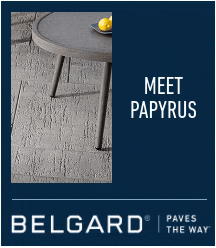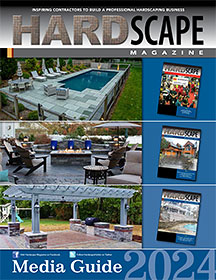Articles Written by Charles Vander Kooi
What Jobs Give You an Edge?
By Charles Vander Kooi
One of the considerations before deciding whether to bid a particular job is: Does the job fit your company and give you an advantage? Of course there are other considerations as well.
You should go through an evaluation to determine whether you have time to do the job. I also recommend you put together a work flow chart so we can evaluate what we've already got scheduled and whether/where we can work it in. Right now lets focus on deciding what jobs fit your company and give you an advantage.
Understanding the definition of estimating is fundamental to our understanding of this concept. Estimating and bidding are not the same thing.
Estimating is the science of arriving at what a job costs your company. It is taking a set of plans and specifications, and arriving at what a job costs in the big 4: material, labor, equipment and subcontractors.
Bidding is taking that estimate and adding overhead, profit and contingencies to it and turning in a price-a bid-for what you want your company to be paid for the job.
You can lower your bid price on a job by asking for less profit or by reducing your company overhead. However, you can never, nor should you ever, lower your estimated costs. Costs are costs. Therefore, estimating, first and foremost, is the science of arriving at what a job costs. From those costs a bid is developed.
The Ancient Bidding Conspiracy
Several hundred years ago, the architects of the world must have gathered in a back room and conspired against all the contractors of history. The conspiracy they came up with was "competitive bidding," the process we're talking about. We have heard those words used for years; words that naturally make us think that we are in some sort of athletic competition.
Imagine that we all get into a wrestling ring and strip down to our waists. Then we lie, cheat, bite, pinch, and gouge at the bid, and at each other, until only one of us, all bloodied and beat up, is left standing: The low bidder. He wins the competition and as a reward, gets to go out and work hard and lose money on a job.
If you fall for the concept that bidding and estimating are the same thing-that it is one company competing against another-then I can tell you what may easily happen to you: You will want a certain job very much. You will want to beat the competition, so you will begin to lie to yourself as to the level of costs. You will say that things will cost less than they will, or that you will buy less or you will.
You will do those things in order to be the low bidder, and many times you will be low bidder. However, when all is said and done, the job will cost you what it actually costs regardless of what you said to yourself while you were estimating. Costs are costs are costs are costs! Estimating is the science of arriving, fairly and honestly, at what the costs are going to be.
A Tale of 2 Contractors
Now, if costs don't change, why is it that 2 different contractors given the same set of plans and specifications to estimate will come up with different costs for the same job? Is it because one of them messed up? Not necessarily.
They should come up with different costs because of the differences in their companies. One company, for example, will be able to do the job faster and cheaper because it has certain supply sources or possibly a crew who specializes in a certain tasks. Or maybe they have a piece of equipment that can get the work done cheaper than another type of equipment.
That company, then, should be low bidder. Not because they underbid the other company, but because that job fits their company better then it fits anyone else; thus, it costs them less.
Does the Job Fit?
With that in mind, one of the first questions you should ask when you are deciding on what to bid is: "Does this job fit my company, and does that fit give me an advantage in the bid?"
If it does, the job should be given a high priority on your bid schedule. If it doesn't, the job should be given low or no priority on your bid schedule. Thus, you will be spending your time on bidding the jobs where you have the greatest advantage and the greatest potential for being successful.
What are your company's advantages that make a job fit you best? Do you know what they are? If not, spend some time determining them, and then keep them in mind when shopping for jobs to bid on.
Surviving Heavy Competition
Play to your strengths! One of the questions I am often asked is: "What do you do when there are 10 to 15 bids for one job?" Increase your advantages!
The construction industry, I believe, goes in several cycles. One cycle involves the amount of work available in relationship to the number of contractors who need that work. Of course, that's based on the economy and on the growth pattern of a given area.
For instance, for several years there are often only 2 or 3 bidders on each job and things are going well. Everybody's busy and making money. Then, for a year or 2-or even longer-there are many contractors at every bid opening.
3 Survival Considerations
How do you survive these competitive times? There are 3 things to consider that can help you to survive:
1. Use Crew/Individual PotentialI know a contractor who started primarily as a landscape contractor. But, he added an excavation superintendent and equipment to his company. Then he added a concrete superintendent and a building superintendent who could build small buildings.
This group of people allowed him to become a general contractor on site-development type projects. He was able to go out and bid projects with earthwork, concrete work, small buildings, landscaping and irrigation work and do all the work with his own people.
That gave him a distinct advantage at the bid table. Not because he was cutting his throat in the areas of overhead and profit, but because he had an advantage at the level of cost.
What kinds of things are you doing with your own people? Are there some types of work that you could do on some of your jobs using your own people rather than subcontracting? If so, will doing that give you a decided advantage at the bid table?
2. Find Something ElseI remember when a new company started up when I was working for another company. The new company took everything in a particular line of work that came out to bid in that city for 6 months. We could not get any jobs.
We joked that if we needed their kind of work done at our own office building, they could do it cheaper than we could at cost.
At that point, we had a choice: On one hand, we could get down in the mud and take jobs at their prices and hope we could out-last them. On the other hand, we could cut back on overhead and profit and look for work somewhere else.
We decided on the second option. For a year we picked up and did jobs in 5 neighboring states. In 9 months the new company that was picking up everything went broke, and we came back home to a better market. We survived!
You see, I have a fundamental belief that is tied to my definition of estimating. When times are tough, you don't get down into the mud of cutthroat bidding. You can cut your profit as much as possible and reduce your overhead as much as is reasonable, and then you must look for advantages.
You never, ever fool yourself and adjust your cost figures to match someone else's bid. Costs are costs are costs, and they should never be changed. Estimating must always be the science of arriving at what a job really costs your company. What you do with it from there becomes the science of bidding, turning in a bid that you hope will get you the job.
3. Look to TechnologyI know a man who was always looking for new construction techniques and specialized equipment. When anything new came out, he was there looking at it with only one purpose in mind: Would this new technique or specialized equipment give his company an advantage at the bid table? If it did, he brought it home to his company.
In his particular area, he was the first to use or implement new ideas and equipment that later became industry standards. Since he was one of the first to take the risk of trying something new, he enjoyed advantages for many years while others were still doing it the old way.
Keeping that in mind, when deciding what to bid, you should ask yourself, "Does it fit our company and give us an advantage at the level of cost?" Next time you open a new set of plans and specifications, look them over with that thought in mind.













